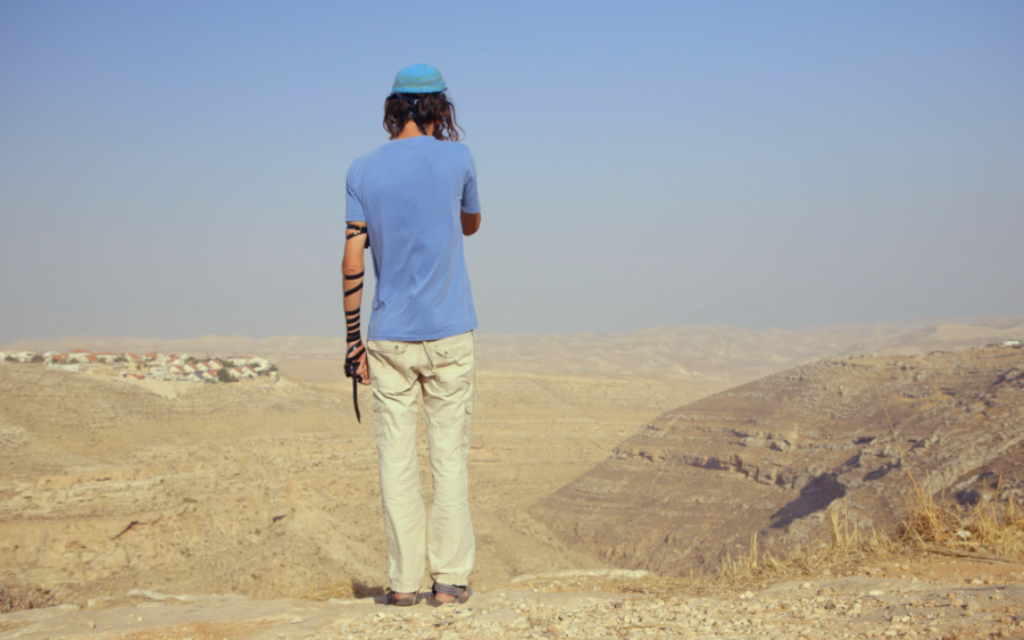Editor’s Notebook: Inside the Settler Mind
One of the films people are sure to talk about during the 17th Atlanta Jewish Film Festival has a simple title for a complex topic: “The Settlers.”
Thanks to the resolution the U.N. Security Council passed last month and Secretary of State John Kerry’s lengthy defense of the Obama administration’s decision not to veto the measure, the settlements as an enterprise are very much in the news these days.
But the settlers themselves — those who have chosen to live on the controversial side of a cease-fire line that was never meant to be a permanent border — get lost in the glare of the global spotlight.
Get The AJT Newsletter by email and never miss our top stories Free Sign Up
Filmmaker Shimon Dotan, who is scheduled to appear for at least one of the screenings of the documentary, corrects that error with “The Settlers” and in the process pulls off a difficult trick by telling the story of Israel’s West Bank settlements without demonizing or celebrating them.
If the film did nothing else, it would be a success by reminding us that the half-million Israelis living on what most of the world considers to be Palestinian land are, above all, people.
Some of them are driven by a nationalist desire to restore Jewish sovereignty to the entire historical land of Israel.
Some just can’t afford to live in the center of Israel and, thanks to government policies and philanthropic interests, find that it makes financial sense to buy a home in the West Bank.
Some believe it is their G-d-given right to live where the patriarchs and matriarchs lived, died and were buried — and, despite what Kerry said in his speech Dec. 28, might care more about being left alone to live where they want than about which government collects their taxes and issues their passports.
Certainly, few of the settlers who tell their stories in this film show any great love or the slightest respect for the government of Israel, whatever they might think about the ideal of a Jewish state’s existence.
To Dotan’s credit, he doesn’t tell the story in a way designed to portray the settlers as the great obstacle to Middle East peace, although the mere choice of the term “settlers” points to a belief that they’re living somewhere with less legitimacy and less justification than their fellow citizens in Tel Aviv or Haifa.
In a little more than 100 minutes, viewers of “The Settlers” learn the history of how the Israeli government, often without intention, allowed the settlements to take root and bloom. The mix of archival footage and new interviews proves two things: The passion driving the leaders of the settler movement has not dimmed in the half-century since the Six-Day War made such a thing as a settler possible, and the Israeli government’s recent stumbling over the illegal Amona outpost is just the latest example of official confusion about how to deal with the West Bank (or Judaea and Samaria).
Just keep an eye out for Shimon Peres during one government-settler confrontation to see the epitome of the government dilemma.
Dotan gets the obligatory Arab perspective on the settlers, but it’s the least valuable part of an otherwise exquisite film. It’s no surprise that the Palestinian watching Jews farm his ancestral land isn’t happy and is counting the decades until they’re gone.
The highest value of the film is when the settlers themselves are on camera, explaining who they are and why they’re there without any embellishment or shading from Dotan. Whether you see “The Settlers” as pro- or anti-settlement depends entirely on how you feel about what they say, and that’s the way it should be.






comments